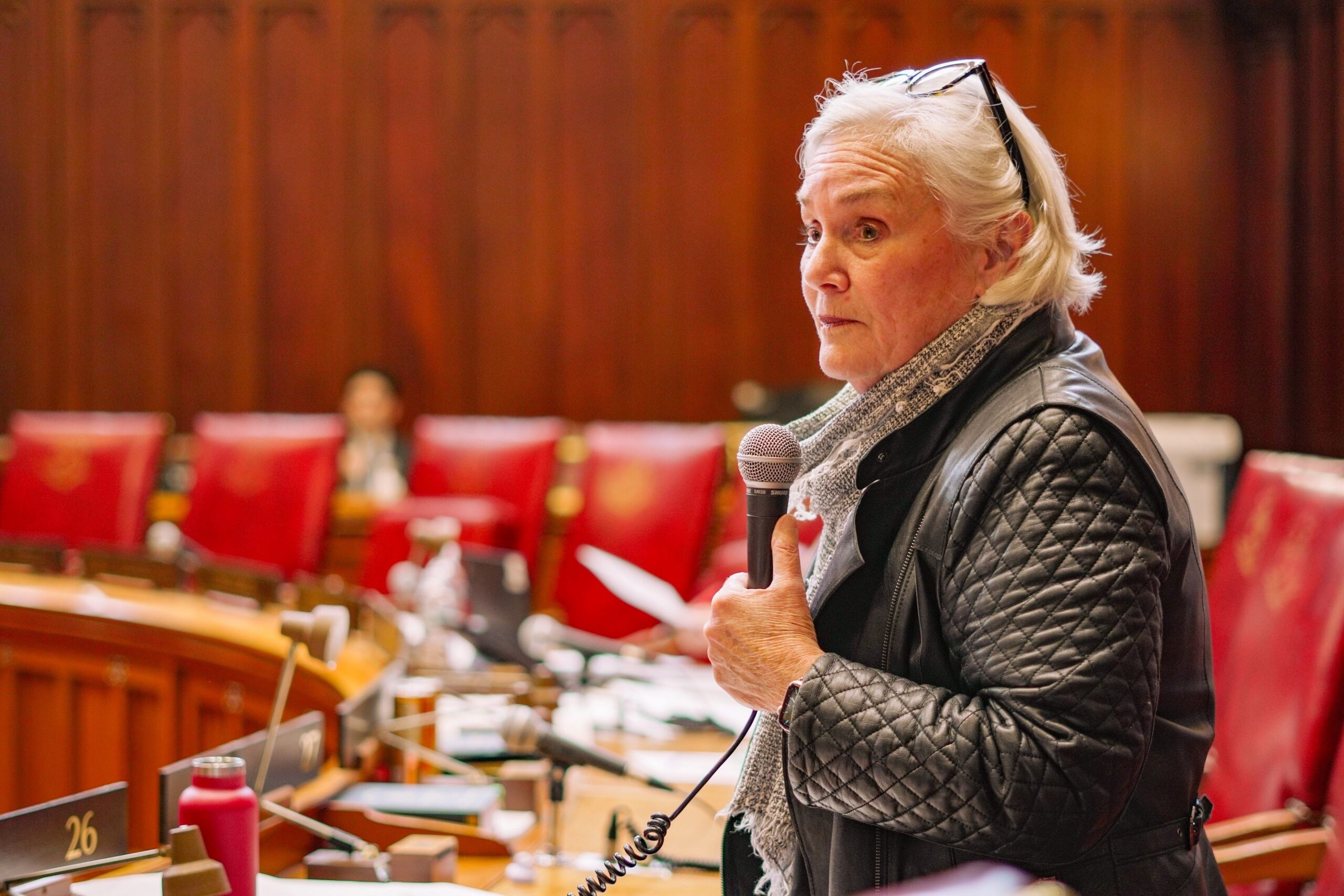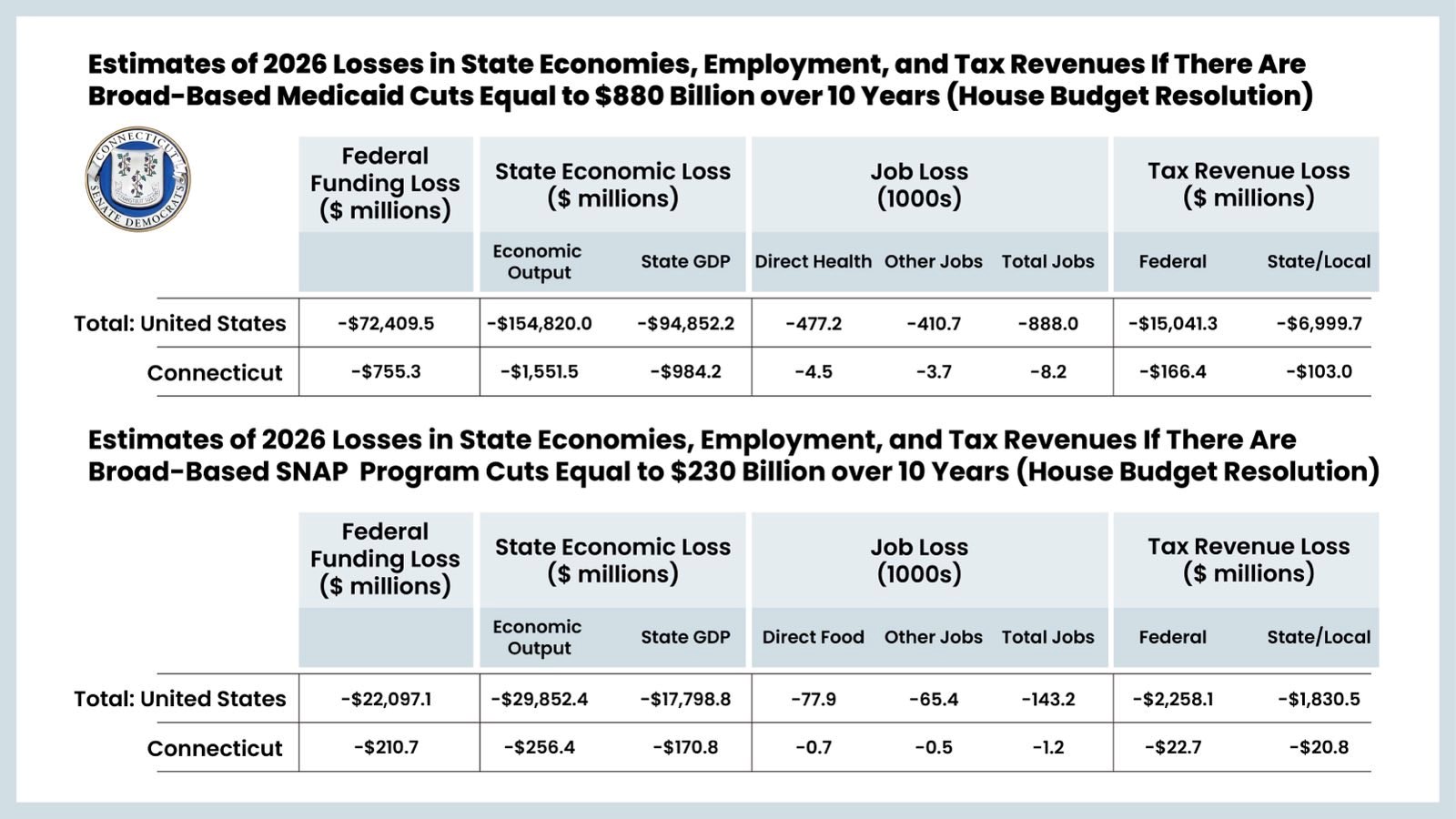Senator Honig Highlights Federal Cuts to Student Mental Health Services in Litchfield County
Senator Paul Honig, D-Harwinton, and mental health professionals with EdAdvance called Tuesday on the U.S. Department of Education to reverse its decision to cut a grant that provides mental health services to roughly 7,000 students at 32 mostly rural schools in Litchfield County.
Senator Honig joined nonprofit leaders, student counselors, and school administrators for a press conference at EdAdvance’s offices in Litchfield, where they called attention to the impact of a cut to grant funding approved by Congress to support the mental health needs of students.
EdAdvance learned on April 29 that its five-year, $8.7 million grant from the U.S. Department of Education would be canceled well before its planned end date in December 2027. Congress awarded the funds in 2022 and the nonprofit has used the money to hire 17 social workers to provide mental health services in schools across Litchfield County.
“These cuts would be bad under any circumstances, but they’re far worse when you consider what our students have been through since the pandemic, the unprecedented disruption of student development,” said Senator Honig. “It’s no exaggeration to say that young people are in the midst of a mental health crisis. School psychologists are overwhelmed and there aren’t enough social workers to go around. Now more than ever, we need exactly the kinds of services that EdAdvance has been providing. It’s time for the federal administration to restore this funding for Litchfield County kids.”
Senator Honig’s district includes five towns served by EdAdvance professionals: Barkhamsted, Colebrook, Hartland, New Hartford, and Norfolk. Additionally, the nonprofit provides services to students in the following towns: Bethlehem, Bridgewater, Canaan, Cornwall, Falls Village, Goshen, Kent, Litchfield, Morris, North Canaan, Roxbury, Salisbury, Sharon, Warren, Washington, Winsted, and Woodbury.
The cut will impact municipalities on both sides of the political aisle. During the 2024 election, President Donald Trump, whose Department of Education cancelled the mental health grant, won roughly half of the towns served by the grant, while former Vice President Kamala Harris won the other half.
“This is not about politics. It’s about policy,” Executive Director of EdAdvance Jonathan Costa said. “We believe that helping young students be better self-regulated and improve their mental health outcomes is good policy. We are here to advocate for those outcomes and to reverse this cancellation decision.”
The services provided to students by EdAdvance include classroom sessions on topics like decision-making, character development, and social media awareness. The nonprofit’s counselors also provided immediate intervention to 100 students in crisis, helping them overcome their difficulties and return to classrooms.
“Our counselors provide valuable one-on-one support and crisis intervention, collaborating with parents and district staff to ensure that each student receives the assistance they need,” Judy Palmer, director of school climate and mental health services for EdAdvance, said. “The relationships our providers build with families extend beyond the school, often connecting them to additional outside mental health resources when needed.”
The grant has enabled EdAdvance to provide youth mental health services throughout a region, where young people seeking help often face provider waiting lists. Meanwhile, the timing of the grant’s cancellation left many school districts unable to arrange for replacement funding. Budgets for most school districts were due in the spring.
“Due to the late notice of this situation, we were not allowed the opportunity to be able to advocate for grants or budgetary funds at our local levels to support the continued services that this grant provides,” Melony Brady-Shanley, Superintendent of Schools for Region 1, said. “So what I’m asking today is that you please reinstate this grant in its full capacity so that the children and staff and families of our Litchfield County Schools can continue to benefit from this great opportunity.”









